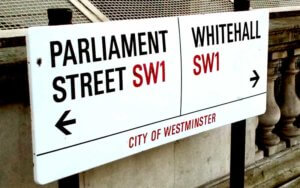Campaigners have blamed funding cuts and an “ideological shift” for a sharp rise in the proportion of disabled children being educated in special schools over the last four years.
Figures from the Local Government Association (LGA) show the proportion of pupils with special educational needs and disabilities (SEND) who attend a special school in England has risen from 5.6 per cent in 2012 to 8.5 per cent in 2016, with the proportion in independent specialist settings rising from 4.5 to 6.3 per cent.
While the proportion of those with SEND educated in primary mainstream settings has risen slightly, the proportion in secondary mainstream settings has slumped from 40.5 per cent to 33.1 per cent between 2012 and 2016.
Tara Flood, director of The Alliance for Inclusive Education, said the impact of funding cuts meant there was less support for disabled pupils in mainstream schools, which made their placements “much more fragile” and gave their schools “a much bigger opportunity to say the placement isn’t working”.
Flood (pictured) said: “It’s about budget cuts but it’s also about an ideological shift in what the local authority is willing to pay for.
“What it results in is even less money in the SEND support budget because the local authority is spending far more to send these children out of borough.”
Many parents are appealing to an SEND tribunal because their child is not receiving the support they need in a mainstream setting, she said, resulting in the council having to fund a far more expensive specialist placement, with fees of up to £250,000 a year.
Often the mainstream setting fails because a disabled child’s education, health and care plan (EHCP) – which is replacing statements of special educational needs – “is not thorough enough; it’s a template rather than being person-centred”.
She blamed the increasing proportion of disabled children in special schools on the pledge in the Conservative party’s 2010 manifesto to “end the bias towards the inclusion of children with special needs in mainstream schools”.
Last month, the Department for Education (DfE) announced an extra £215 million to create new school places and improve existing facilities for disabled children and those with special educational needs, but this can be used by both special schools and units and mainstream settings.
Flood said: “We are convinced that that money will not be ring-fenced for mainstream, it will be about creating more special provision.”
She said she believed that only “a fraction” of the £215 million will be spent on expanding mainstream provision.
LGA said that a government grant for “high needs” pupils has been frozen for several years and councils have had to top it up from other sources, and it warned that proposed government reforms suggest that this flexibility will no longer be available to councils in the future.
And it said that the £215 million would not be enough to cover the needs of increasing numbers of pupils with SEND.
It released the figures as it responded to a government consultation on DfE’s high needs funding formula for schools.
The LGA response says: “We are concerned that if councils do not receive sufficient funding to cover high cost SEND, they will not have the resources to allocate extra funds to highly inclusive schools…
“The concern is that unless funding reflects needs, mainstream schools may be reluctant to accept or keep pupils with SEND because they cannot afford to subsidise the provision from their own budgets, which are already facing significant financial challenges.”
Cllr Richard Watts, chair of LGA’s children and young people board, said: “There has been a historic underfunding of high needs funding and a significant increase in the number of pupils with special educational needs or disabilities in schools.
“The government should provide additional funding to meet this need, otherwise councils may not be able to meet their statutory duties and children with high needs or disabilities could miss out on a mainstream education.
“Whilst the additional funding announced earlier in the year [the £215 million] was a step in the right direction, it was never enough to meet the needs of the increasing number of SEND pupils.”
DfE has so far refused to say whether it accepts the LGA figures, whether it was concerned by such a large increase in children with SEND in special schools, or how it explained the increase.
But a DfE spokeswoman said there had been an incease of £92.5 million in high needs funding in 2016-17, with a further £130 million increase in 2017-18.
She said the government’s proposals would mean no local authority would lose high needs funding and they would continue to have some flexibility to transfer funding to their high needs budgets.
And she said DfE provided £23 million in 2016-17 to help local authorities review their plans for SEND provision and implement any changes necessary.
Where these plans need funding to build new school places or improve existing ones, the costs could be supported by the £215 million fund.
She said: “This government is determined to build a country where everyone can fulfil their potential.
“This is backed by a £5.3 billion investment in 2016-17 for children and young people with high needs, which is protected in real terms in this parliament.
“We’ve also announced a £215 million fund for councils across the country to improve and create more special provision.
“This will help build new classrooms and improve facilities for pupils with special educational needs, so that no child is left behind.”

 ‘Game-changing’ £1.5 million will fuel ALLFIE’s fight for inclusive education
‘Game-changing’ £1.5 million will fuel ALLFIE’s fight for inclusive education Third of young people with SEN experienced violent bullying last year, says government
Third of young people with SEN experienced violent bullying last year, says government Parliamentary meeting demands end to segregation and abuse of young disabled people
Parliamentary meeting demands end to segregation and abuse of young disabled people